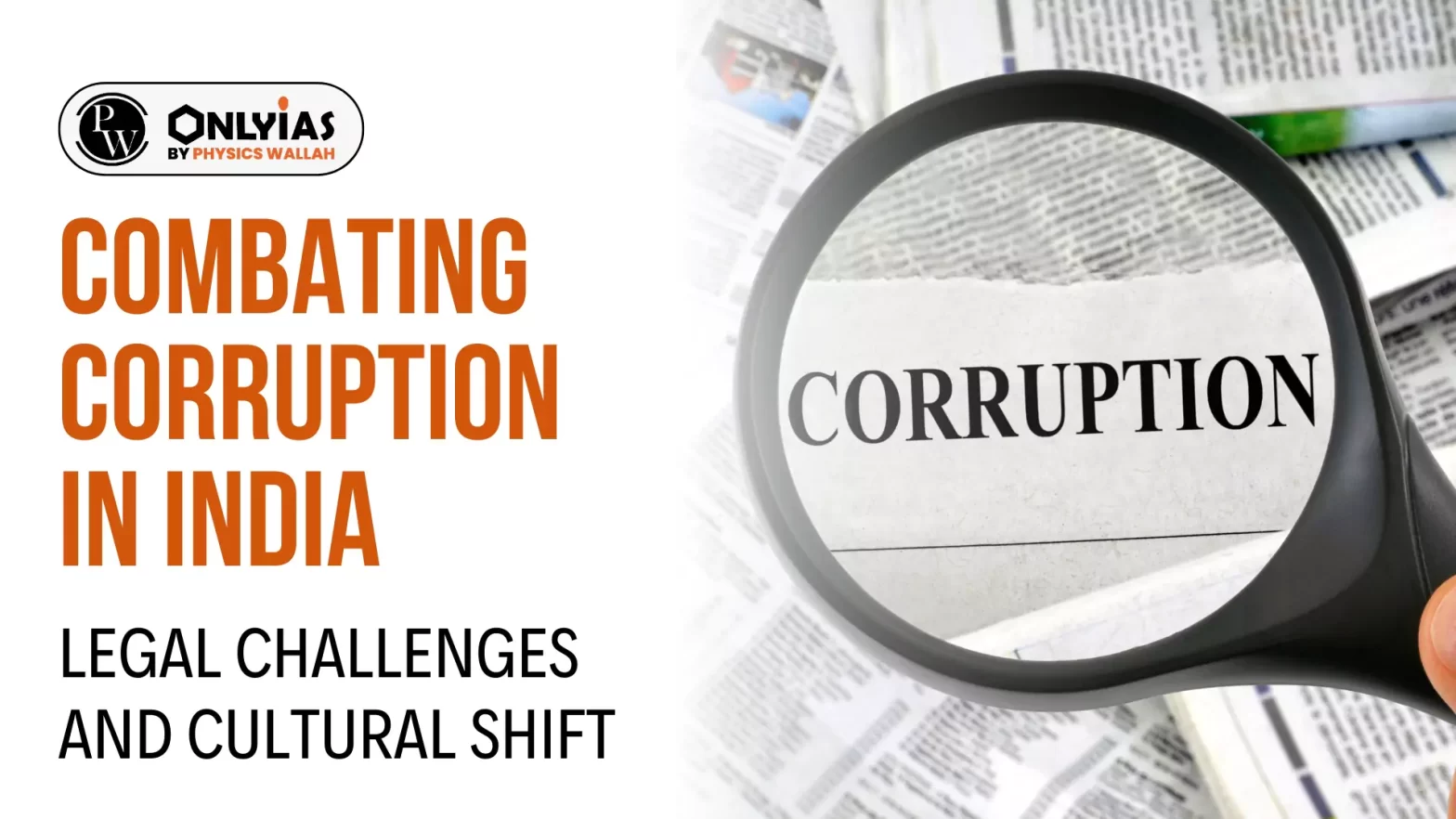Context
The recent raids on public functionaries and private individuals speak volumes about the deep roots of corruption still existing in Indian society.
Issue of Corruption in India
- Corruption Resurfaces in National Discourse: Whether it is the issue of electoral bonds, and the liquor policy of Delhi or many others involving politicians, bureaucrats and even private individuals, perhaps after some hiatus, the ghost of corruption is back haunting the national discourse at present.
- Perceptions of Corruption in India: Varying views on corruption prevalence based on individual experiences and knowledge.
- Some perceive corruption as predominantly governmental or political, while others see it as pervasive across all sectors.
- Diversity of opinions ranging from justifying corruption to vehemently criticizing it.
- Corruption Beyond Government: Corruption knows no bounds, infiltrating both public and private realms.
- From street vendors to corporate executives, instances of exploitation and dishonesty abound. Despite their prevalence, such acts often evade legal censure, revealing systemic shortcomings.
Enroll now for UPSC Online Course
- Unmasking Hidden Corruptions: Monetary gain isn’t the sole motive; abuse of power and arrogance play significant roles.
- Bureaucratic delays, undue harassment, and abuse of authority erode public trust. Such actions contradict the oath of honesty sworn by public officials, underscoring a breach of faith.
- Efficacy of Legal Measures: Governments enact laws and establish enforcement agencies to combat corruption. However, recent events suggest a failure to deter illicit behavior.
- This raises doubts about the efficacy of legal frameworks in addressing systemic issues.
- Normalization of Corruption: The reluctance to condemn corrupt acts and the absence of social stigma suggest a troubling acceptance of unethical behavior. Addressing corruption requires challenging entrenched cultural attitudes.
- Solutions for Combating Corruption in India: Combating corruption demands a multifaceted approach. Merely relying on legal measures is insufficient. Revisiting social, educational, and cultural norms is essential to foster a culture of integrity and accountability.
Conclusion
Corruption in India remains deeply entrenched in the society. To effect change, a holistic approach is imperative. By challenging norms and fostering accountability, India can strive towards a future free from the shackles of corruption.
Also Read: Enforcement Directorate-States Tussle
![]() 25 Apr 2024
25 Apr 2024
